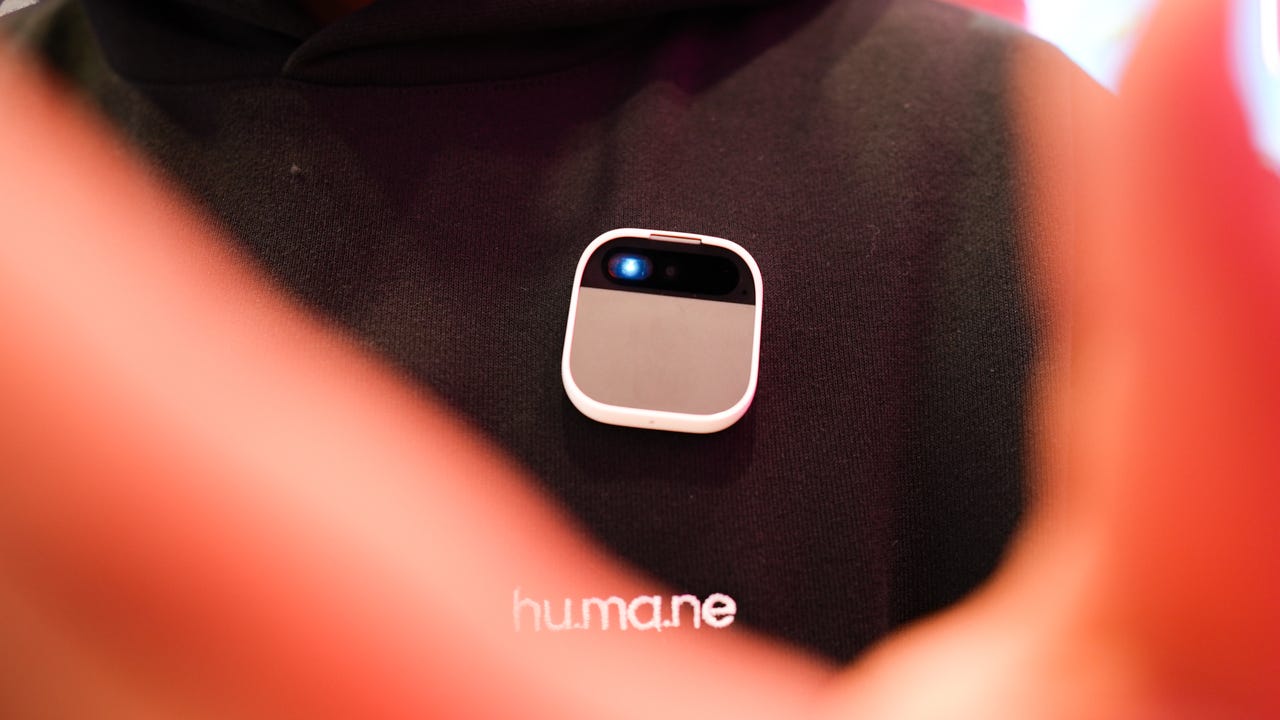'ZDNET Recommends': What exactly does it mean?
ZDNET's recommendations are based on many hours of testing, research, and comparison shopping. We gather data from the best available sources, including vendor and retailer listings as well as other relevant and independent reviews sites. And we pore over customer reviews to find out what matters to real people who already own and use the products and services we’re assessing.
When you click through from our site to a retailer and buy a product or service, we may earn affiliate commissions. This helps support our work, but does not affect what we cover or how, and it does not affect the price you pay. Neither ZDNET nor the author are compensated for these independent reviews. Indeed, we follow strict guidelines that ensure our editorial content is never influenced by advertisers.
ZDNET's editorial team writes on behalf of you, our reader. Our goal is to deliver the most accurate information and the most knowledgeable advice possible in order to help you make smarter buying decisions on tech gear and a wide array of products and services. Our editors thoroughly review and fact-check every article to ensure that our content meets the highest standards. If we have made an error or published misleading information, we will correct or clarify the article. If you see inaccuracies in our content, please report the mistake via this form.
Humane Ai Pin reviews: 5 takeaways on a promising but dangerously flawed wearable

The Humane Ai Pin is such an ambitious, complex, avant-garde product that I wasn't surprised to read what I read this morning -- when the first reviews of the $699 wearable hit my news box. After years of teasers, controlled demonstrations, and a surprise appearance at MWC in February, journalists and, perhaps more importantly, real customers who have invested in Humane's first-gen product, can put its ambient computing vision through real-world tests.
Also: OpenAI makes GPT-4 Turbo with Vision available to developers to unlock new AI apps
ZDNET's full review of the Ai Pin will be published soon, and you'll learn why the delayed coverage makes the most sense shortly. For now, here are the five biggest takeaways from initial reviews of Humane's wearable, including more details on its laser ink projection, AI capabilities, durability, and more.
1. Interactions feel futuristic (when they work)
Perhaps the most fascinating part of the Ai Pin, and what separates it from the incoming wave of AI wearables, is the various ways to interact with the hardware, as well as one's surroundings. The Pin can respond to taps and presses via a gesture pad, answer voice commands via top-firing microphones, process visual data via camera sensors, and even project a laser ink display onto your hand for a more smartphone-like experience.
While almost every reviewer suggests that the last method is the most difficult to master, the overarching problem with the Ai Pin has more to do with usability than capability. In the case of CNET's Scott Stein, when asked to identify a can of seltzer, the wearable, powered by a combination of large language models (OpenAI, Google, and OpenSource models, Inverse reports), described the movie Luck on Apple TV+.
Also: Samsung's new line of smart home appliances is supercharged with AI
The Verge's David Pierce discovered that while the Ai Pin could create notes and lists, it couldn't set alarms or timers, or add an event to your calendar. "The problem with so many voice assistants is that they can't do much -- and the Ai Pin can do even less," Pierce says.
The AI-generated responses were also called into question by Wired's Julian Chokkattu, who caught the Pin hallucinating about California banning high-fructose corn syrup. While AI hallucinations are nothing new, especially with the mishmash of generative models and limited training data, it's unfortunate to see a product built around AI fall to similar shortcomings.
2. Laser projector can't beat the sun
Real-world tests also found that the Ai Pin's laser projection just doesn't get bright enough to beat the sun, unlike the moon. Prior to the reviews, the Ai Pin had only been demoed publicly in dimmer environments like the TED Talk stage and indoor convention booths, so how the laser projection fared under direct sunlight was the biggest question left unanswered.
"The projector is basically unreadable when you're in the sun," says Chris Velazco for The Washington Post. Several other reviewers shared a similar sentiment, noting that the lack of brightness can be an issue when you do need to interact with more visual-based information, such as inputting your password (which requires a tilt-forward-and-backward motion to scroll through the number pad), seeing how captured photos look, and more.
3. Battery life is a bright spot (until it's hot)
On the plus side, reviewers have found the modular nature of the Ai Pin very useful for endurance. While the wearable averages about four to five hours of battery life without the "Battery Booster" clip-on, it can last up to nine hours (or long enough for a day's use, according to CNET's Scott Stein) with the additional accessory, and be constantly powered when docked in the Charge Pad, also included in the box.
Review: Meta Ray-Ban Smart Glasses: The best AI right now
"This swappable battery system is one of the best ideas about the pin. I found my everyday battery life lasting most of a day, far longer than the few hours I get with Meta's Ray-Ban glasses before needing to take them off for a charge (and then not have glasses). I like the comfort of consistent charge options," Stein says.
There is one issue with the battery-boosted Ai Pins: They get hot. Sometimes too hot, as reported by multiple reviewers. "I found the AI Pin suddenly needed cooldowns whenever I used that laser display for more than a few minutes," reports Stein. "I felt burned every time my skin came into contact with its chrome edges," adds Engadget's Cherlynn Low.
4. The Ai Pin can take a drop (or two)
Earlier this year, I got a chance to wear the Ai Pin at MWC. I decided to do some impromptu jumping jacks to see just how sturdy the wearable was when latched onto my shirt. To my surprise, and probably the relief of the Humane staff beside me, the Pin stayed in place.
Also: CT scans give us a peek inside the Apple Vision Pro and Meta Quest headsets
But a strong wind gust during a New York City thunderstorm was powerful enough to blow the Pin off of Inverse's Raymond Wong. Spoiler alert: Wong recovered the wearable, and even found it to still be functional, with just a "very barely visible dent in its polished aluminum frame." It was a subtle test of the Pin's water resistance too, which proved adequate.
5. You probably shouldn't buy one yet
Ultimately, there is a common theme across the first round of reviews: The Ai Pin is still a work in progress, potentially months and maybe even years away from truly becoming everything Humane wants the ambient computing wearable to be. The Verge grades the Ai Pin a 4/10 and Engadget a 5/10. The product is so unfinished that CNET isn't even calling its review a "review."
That means you probably shouldn't buy the Ai Pin right this moment, not when its best features, including any GPT-4 capabilities, are still in development and promised to come in future software updates. But when it comes to all consumer electronics, a general tech advice of mine is that you should only buy products for what they are today, not what they're promised to be in the future.
